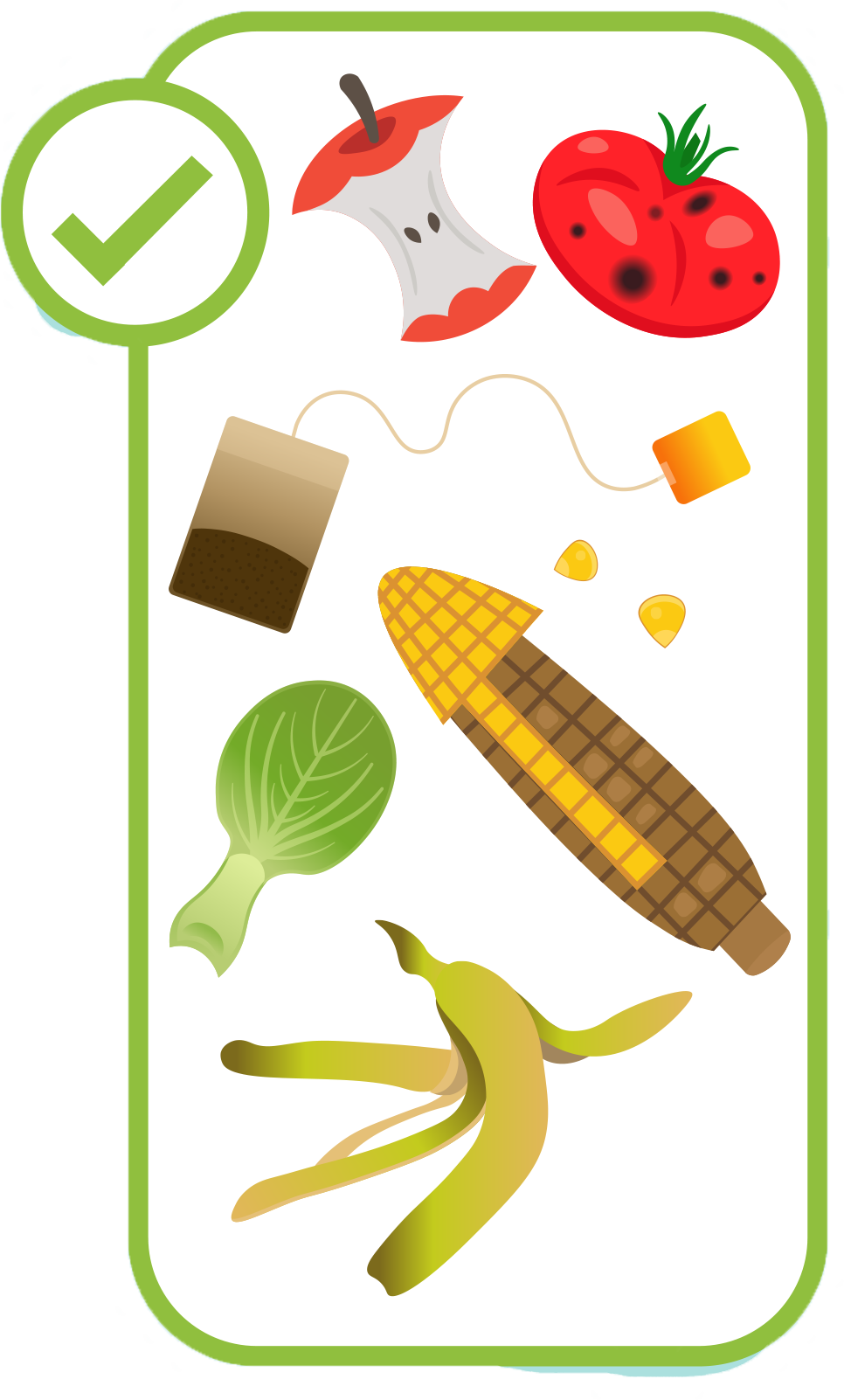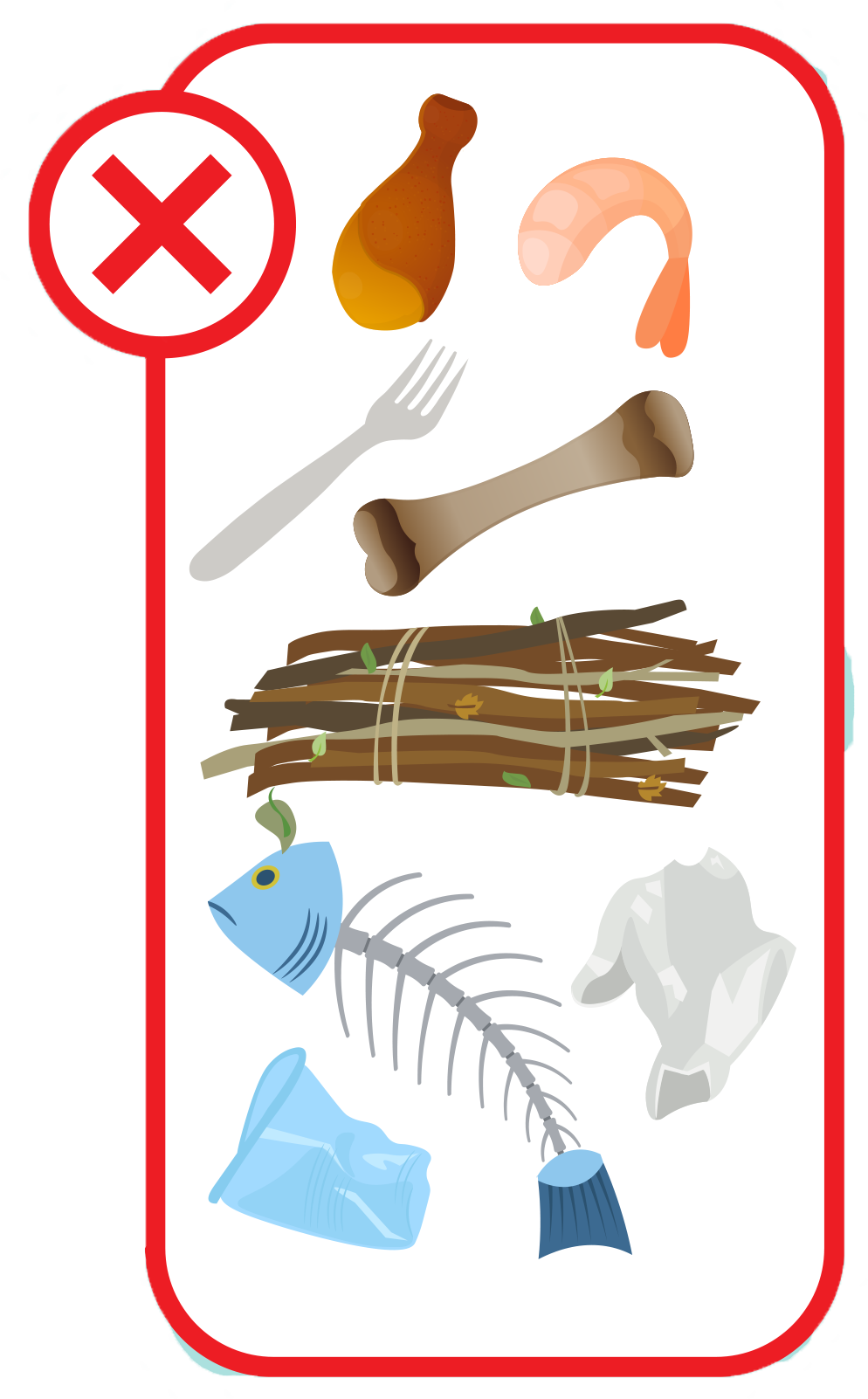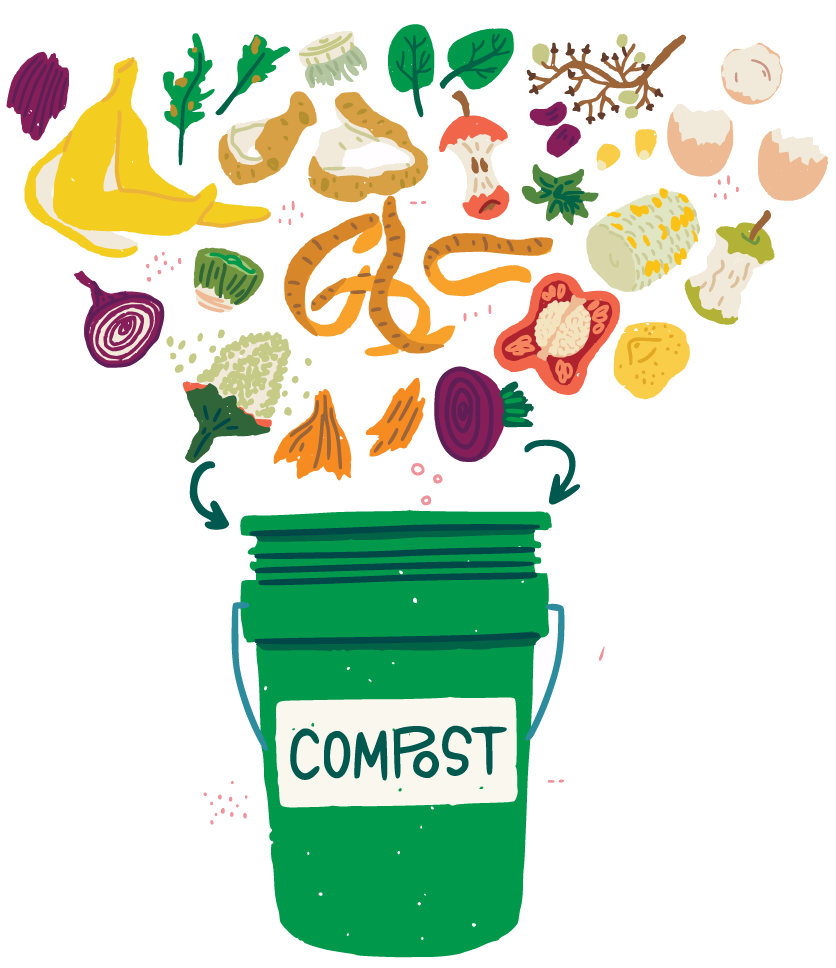What is Composting?
Food scraps and yard waste currently make up 20-30% of what gets tossed in landfills. Once in the landfill, the nutrients in the scraps are lost, taking up space and contributing to greenhouse gas emissions in the form of methane. Diverting this type of waste into a regenerative system to improve the health of the soil benefits every living thing. Composting is the concept of taking organic materials such as leaves, vegetables and food scraps and turning them into a rich soil amendment (compost) using four basic ingredients: nitrogen, carbon, water, and air.
Composting is a practice that can bring the community together. It is full of environmental benefits focused on reducing waste pollution while creating a valuable resource. Compost is the best source of food for soil which allows for the growing of food that nourishes us and a variety of plants that help keep our community lush.
Where to Compost?
What to Compost?

Accepted
-Fruits & Vegetables
-Tea & Coffee
-Eggs Shells
-Pasta, Rice, Grains
-Shredded, non-glossy paper

Not Accepted
-Meat
-Dairy
-Seafood
-Plastic/Trash


